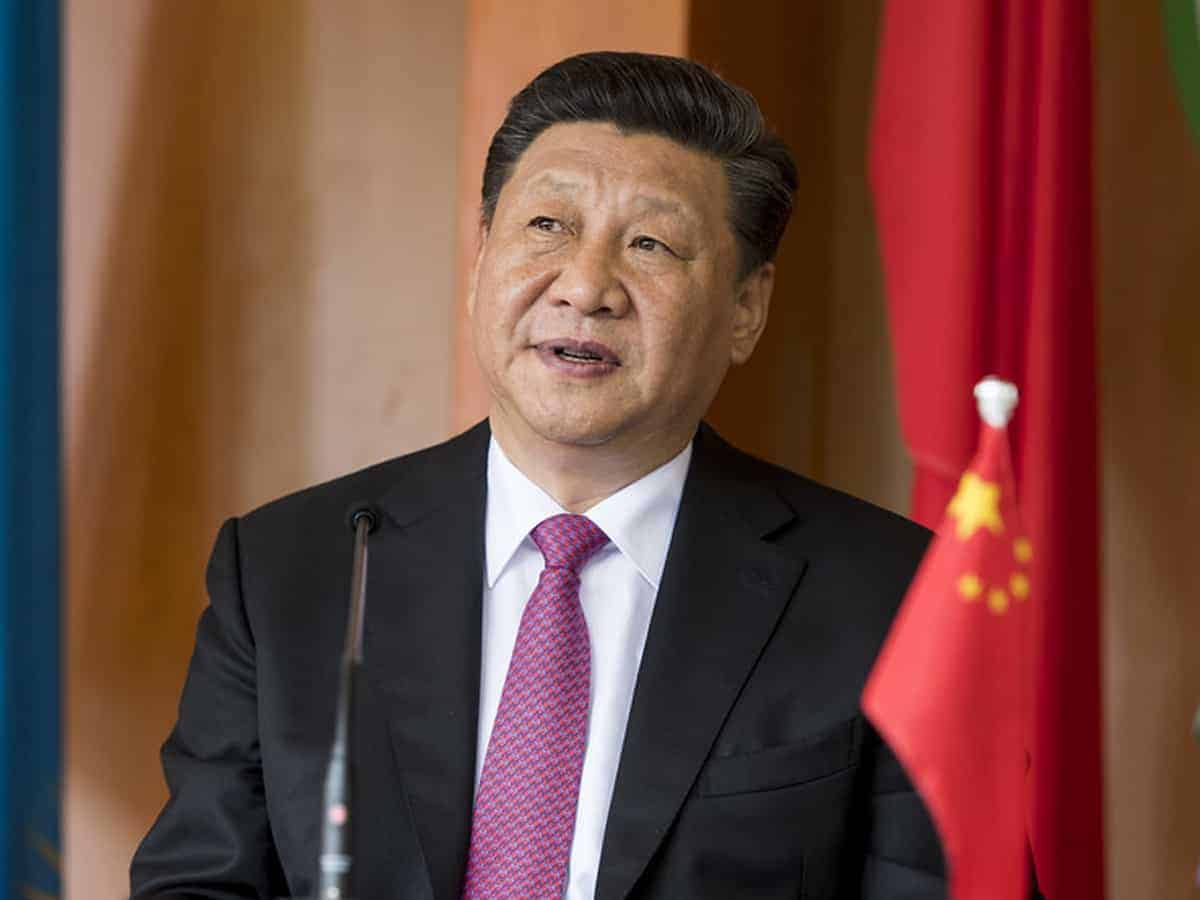
Beijing: The countdown for next month’s key Congress of the Communist Party of China (CPC) began as the ruling party on Sunday announced that all delegates totalling nearly 2,300 were “elected” for the once-in-a-five year meeting in which President Xi Jinping is widely expected to get endorsed for a record third term.
A total of 2,296 delegates were “elected” to attend the upcoming 20th National Congress of the CPC to be held on October 16, official media reported, citing a statement by the party here.
Scotching rumours and speculation over tensions within the ruling party over Xi’s continuation for an unprecedented third term, the statement said that the delegates were elected under the guidance of Xi Jinping Thought on Socialism with Chinese Characteristics for a New Era, and in accordance with the Party’s Constitution, adopting methods required by the CPC Central Committee.
Xi, 69, himself was “elected” as a delegate to the Congress in April this year, according to the party’s earlier announcement.
The process upheld the Party’s nature and purpose, adhered to and enhanced the Party’s overall leadership, and fully embodied intra-party democracy, the statement said.
The Congress, in which Xi is expected to get endorsed for an unprecedented third term, is being held amid a big purge of top security officials, stated to be part of a political clique opposed to the Chinese President.
Three security officials were sentenced to death with a two-year reprieve this week for corruption, raising eyebrows about the sudden surge of punishments ahead of the Congress.
Sun Lijun, former vice minister of public security who was accused of heading a political clique opposed to Xi, was sentenced to death on Friday with a two-year reprieve for taking bribes, manipulating the stock market and illegally possessing firearms by the Intermediate People’s Court of Changchun in northeast China’s Jilin Province.
A day before that the same court sentenced Fu Zhenghua, former Justice Minister and one of China’s most powerful police chiefs, to death with a two-year reprieve for indulging in corruption amounting to USD 17.3 million and abuse of power.
Hours later, the same court gave a similar sentence to former Jiangsu official Wang Like. He was also sentenced to death with a two-year reprieve for bribery, conniving with criminal gangs and faking identity cards, official media here reported.
Since he came to power in 2012, Xi has carried out a shock and awe anti-corruption campaign in which over a million officials, including dozens of top military officers, were punished.
The CPC holds a Congress every five years. But this year’s Congress is regarded as significant, as it is a leadership change year for the century-old party.
Xi, heading the party, the military and Presidency, is due to complete his 10-year tenure.
As per the norm widely followed since the death of party founder Mao Zedong in 1976, all Xi’s predecessors strictly followed a 10-year tenure keeping up with the directive of Mao’s successor Deng Xiaoping.
Deng, regarded as Paramount Leader for his pragmatic social and economic policies introducing market reforms diluting socialist ideology, directed the leaders to strictly confine to a 10-year tenure to ensure the emergence of new and collective leadership to avert some of the excesses like Cultural Revolution pursued by Mao in which millions of people were killed in the name of ideological experimentation.
Indications are that Xi, who is conferred with the title of core leader like Mao, is expected to continue in power for a third term and perhaps for life, which reportedly caused consternation among the 96-million-member strong party.
The CPC statement said the elected delegates are composed of outstanding CPC members who are highly qualified ideologically and politically, have good work styles and high moral standards, are competent in discussing state affairs, and have made remarkable achievements in their work.
The spectrum of the delegates is broadly representative, meeting the requirements set by the CPC Central Committee on proportions of delegates from various sectors and backgrounds, said the statement.
Among the delegates are Party members both in leadership positions and working on the frontline, a considerable number of female Party members and those from ethnic minority groups, as well as those from various sectors including the economy, science and technology, national defence, judicial, procuratorial and public security sectors, education, publicity, culture, health care, sports and social administration, it said.
The eligibility of these delegates will be verified by a special review committee before they attend the upcoming Congress, the statement said.
